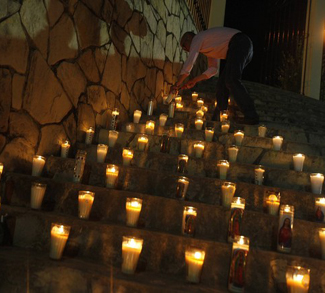Voting on a new Kenyan constitution has wrapped up without a repeat of the terrible violence of two years ago. Now comes the real challenge: pulling the rug out from under old entrenched interests and implementing a new political order.
The new constitution sets out to address a plethora of problems that have been plaguing the Kenyan political process for quite a while now. The new political framework promises to reduce executive powers, devolve more authority to regional authorities, create a senate, and recognize Muslim courts. Implementing the new system will be a long and difficult process, but there’s no reason to believe that members of the defeated ‘no’ campaign will carry on their struggle outside the democratic process. In fact, in his concession speech, the leader of the ‘no’ campaign was careful to stress that, “the majority had their way, we had our say.” Both sides have made several high-profile conciliatory signals to the opposing camp, displaying an appreciation for the national unity that will be critical on the winding road towards implementing the new constitution.
In many ways, Kenya’s new constitution is, as Energy Minister Kiraitu Murungi put it, “the rebirth of the second Republic of Kenya.” Inter-ethnic rivalries and political corruption have long hounded Kenyan politics, culminating in the 2008 election violence that left over 1,500 people dead. The changes contained within the new constitution are fundamental enough to give people hope that sectarian tensions can be soothed through the political process. Moreover, the fact that the referendum vote was held without violent incident can be taken as a positive omen for political stability in Kenya moving forward.
Here is some of what Kenyan newspapers have to say on the occasion of passing the new constitution:
“The easy part of this onerous national duty — of lobbying, talking, campaigning and voting — is over. The next is learning to live with the new order, restructuring the State, actualising reasonable expectations of the electorate and resolving the fears associated with the new constitution.”
“The next step will even be harder, especially reconciling the expectations of the majority and the fears of the minority in a country where both groups have to — and must — live, and learn to live with one another.”
The head of Kenya’s electoral commission announced that 67 percent of those polled voted yes for the proposed reforms.




